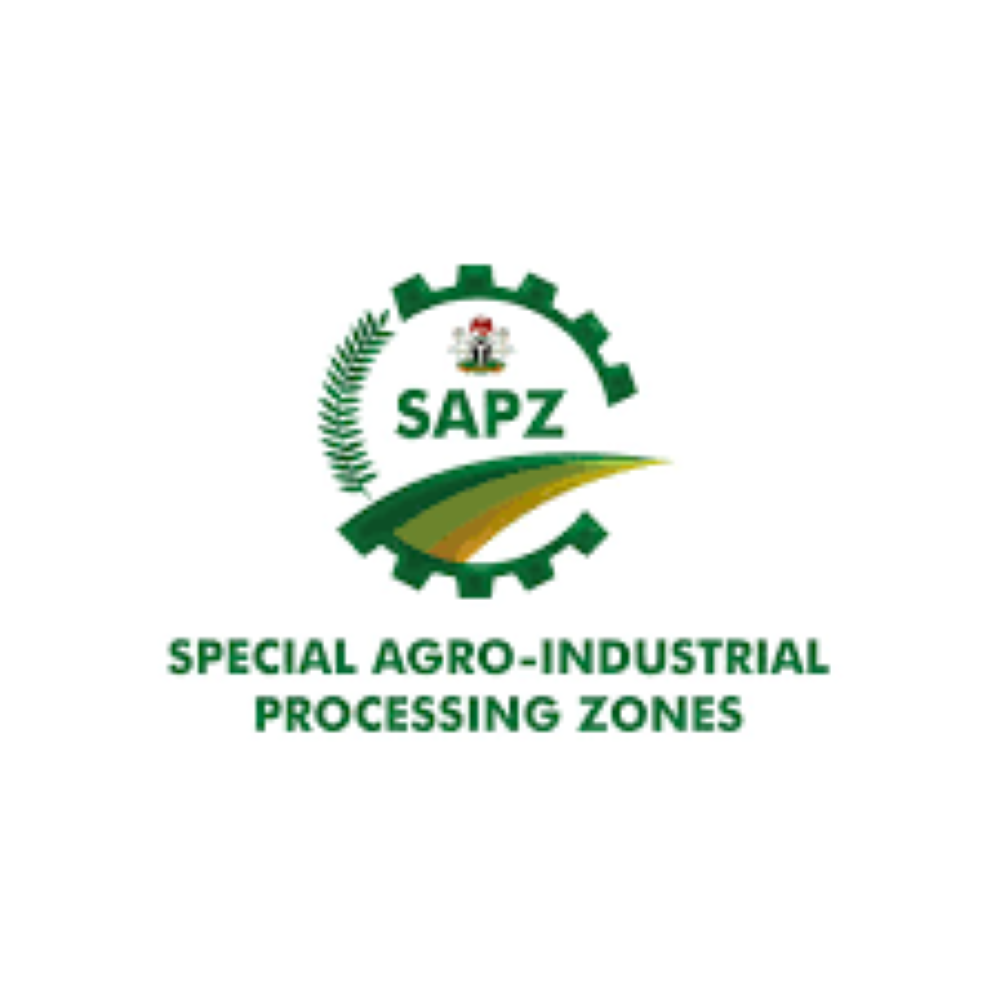A significant intervention in turning around the fortunes of the Nigerian economy through the agriculture sector is the Special Agro-Industrial Processing Zones (SAPZ) of the African Development Bank (AfDB). Under this initiative, participating zones are to bring together the production, processing, storage, transport, and marketing of commodities for high returns and incomes.
Since 1971, the AfDB has invested huge resources in Nigeria. The programme is structured into four broad components, and is considered as the largest in terms of scale and scope when compared with other African countries where it has been established. AfDB and major development partners are co-financing the Phase I of SAPZ to the tune of US$538.05 million. The Phase I, which began in 2022, is being implemented over five years across seven states of Cross River, Imo, Kaduna, Kano, Kwara, Ogun, Oyo, and the Federal Capital Territory, Abuja. SAPZ aligns with the United Nations Sustainable Development Goals (SDGs), global and local development partners’ policies and corporate priorities, Nigeria’s Medium-Term National Development Plan (MTNDP), National Agricultural Technology and Innovation Plan (NATIP), National Agricultural Resilience, and Agricultural Sector Food Security and Nutrition Strategy (ASFSNS).
The project areas cover 19% of Nigeria’s land mass and 50.4 million population. After successful implementation, expected outputs of the Phase I would bring about infrastructure development of agro-industrial processing hubs and agricultural transformation centres. Other merits include the connection of 2,300 hectares of irrigated land and farms to market access roads, as there would be the supply of certified agricultural inputs and extension services; skills development for farmers and micro, small, medium-scale enterprises; and an updated agro-industrial zone policy with a special regulatory regime to mention some.
According to the President of AfDB, Dr. Akinwumi Adesina, the programme is a government-enabled and private sector-led initiative to mobilise private sector investment to develop value chains for selected strategic crops and livestock in participating states, saying to fully unlock the potential of the country’s agriculture, the agribusiness sector should be supported. “Transforming agriculture must start with recognising that agriculture is a business, a wealth-creating sector, not just a way of life. Unlocking wealth in agriculture requires the provision of appropriate technologies to boost productivity, development of agricultural value chains, financial structure to support agricultural value chains”, the AfDB President said.

Adesina also disclosed that the bank had financed several projects in the Northwest zone of Nigeria, including the US$85m Zaria Water Supply and Sanitation Project, which provided water to 650,000 people and sanitation services to 350,000. To further boost the programme, the National Economic Council pledges to channel about US$1.52 billion in donor funds into 36 SAPZs across the nation by creating 17.5 million jobs and supporting 100,000 farmers nationwide. The Minister of Agriculture and Food Security, Abubakar Kyari has described SAPZ as a cross-cutting initiative and platform that can attract private sector investment, add value to Nigeria’s agro-processing, and unlock opportunities for improved food security and job creation, as ‘hubs for aggregation and processing of agricultural produce’.
It is instructive to state that the National Agriculture Growth Scheme had received US$134m in budget support funding under the Bank Group’s Africa Emergency Food Production Facility. This scheme spurred an increase in wheat and rice production during last year’s dry season and through the 2024 wet season in five states to reduce the country’s current US$3bn expenditure on wheat imports. The impact of the programme is vital for the Northwest with an estimated 60 million people, which is 28% of the country’s population; a zone reputed to have the highest incidence of poverty and food insecurity linked to inadequate infrastructure, weak extension services, limited value addition and poor integration into domestic and regional markets.
Ahead of Phase II of SAPZ and with the recent declaration of a state of emergency in food security by President Bola Tinubu, it is hoped that the take-off of the SAPZ Phase II would foster speedy structural transformation of our economy. No doubt, Nigeria needs to diversify its largely monolithic economy by turning agriculture into a wealth-creating sector with highly competitive agricultural value chains. FarmingFarmersFarms lauds the SAPZ programme for its capacity and capability to transform the fortunes of our country. We want SAPZ to also provide more support to curb the growing insecurity that is seriously preventing farmers from farming.
Due attention should also be paid to findings of the International Fund for Agricultural Development (IFAD) Programme Design Report on SAPZ (2021), which identified the risks involved in the implementation of the flagship programme such as the country’s fragility context, such as poor governance and corruption, violence and conflicts and conflicting sector strategies and policies; operational risks like limited access to land for women, youths, persons with disabilities and internally-displaced persons; institutional risks, including political interference; and environment and climate risks, among others. It is our hope that the two phases of SAPZ would collectively bring about the expected economic transformation and national development by revolutionising agricultural practices and shift the country from an agrarian economy to a technology-driven and industrial society.

